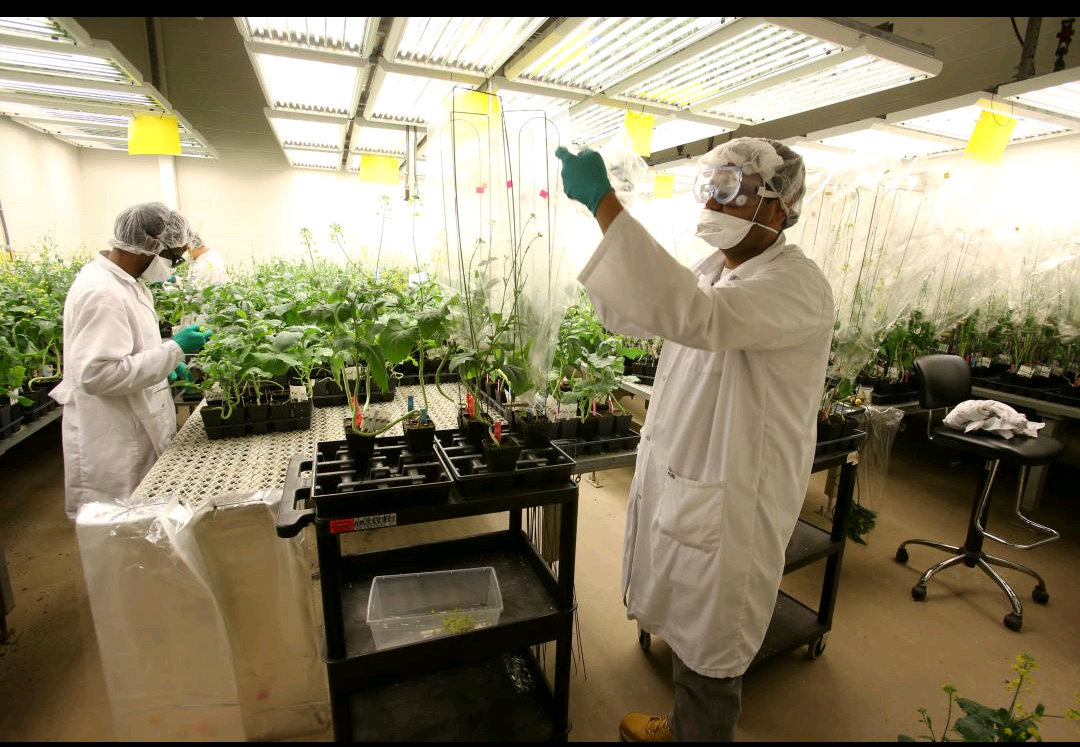Seed firms scramble to stop cancer
 Inside a laboratory Co research technician uses tweezers to transfer pollen from one canola plant to another, a small step toward creating a new breed of the vegetable oil-producing crop.
Inside a laboratory Co research technician uses tweezers to transfer pollen from one canola plant to another, a small step toward creating a new breed of the vegetable oil-producing crop.
It's an early stage of a high-stakes effort to control the biggest threat to Canada's C$27-billion canola industry - a crop disease called clubroot that presents unique challenges for Monsanto, along with rival seed developers DowDuPont and Bayer AG.
The firms are scrambling to create new clubroot-resistant seeds, but all three firms say that the process takes most of a decade - and any solution may not last long because the clubroot pathogen quickly adapts. Worse, clubroot spores make themselves at home in the soil for up to 20 years, unlike most crop diseases that damage harvests for a single season.
Another challenge is canola farmers themselves, who have rapidly spread clubroot by planting record canola crops for the last two years. The best way to avoid the disease is for farmers to give fields at least a two-year break between canola sowings. But with canola consistently delivering much higher profits than wheat, many are unable to resist.
Farmer Bill Craddock acknowledged he plants canola with only a one-year break in Manitoba, where clubroot first appeared in 2013.
"We don't really want to back off," he said. "There's just more money in canola."
The crop - Canada's most profitable - provides big earnings for the seed firms, too. Canola accounts for one-third of Monsanto's total annual Canadian revenue, said spokeswoman Trish Jordan, who declined to specify the amount.
"Companies are very mindful of it because the consequences are huge," said David Dzisiak, DowDuPont's North America commercial leader in grains and oils. "If farmers can't grow their most profitable crop, we can't sell it."
DuPont Pioneer Canada, a unit of DowDuPont, has the largest market share of Canadian clubroot-resistant seeds, according to Monsanto. DowDuPont, which declined to confirm its market position, may add to its lead on the others as it broadly launches a new clubroot-resistant seed this year after introducing it last year on a small scale.
Monsanto hopes to have a new disease-resistant canola seed on the market in two to four years. Bayer expects to have a variety in two to five years.
But all firms face uncertainty because the clubroot pathogen adapts rapidly and not all pathotypes have been identified, said Marcus Weidler, vice-president of seeds operations at Bayer Crop Science.
Congratulations! This post has been upvoted from the communal account, @minnowsupport, by asad from the Minnow Support Project. It's a witness project run by aggroed, ausbitbank, teamsteem, theprophet0, someguy123, neoxian, followbtcnews, and netuoso. The goal is to help Steemit grow by supporting Minnows. Please find us at the Peace, Abundance, and Liberty Network (PALnet) Discord Channel. It's a completely public and open space to all members of the Steemit community who voluntarily choose to be there.
If you would like to delegate to the Minnow Support Project you can do so by clicking on the following links: 50SP, 100SP, 250SP, 500SP, 1000SP, 5000SP.
Be sure to leave at least 50SP undelegated on your account.